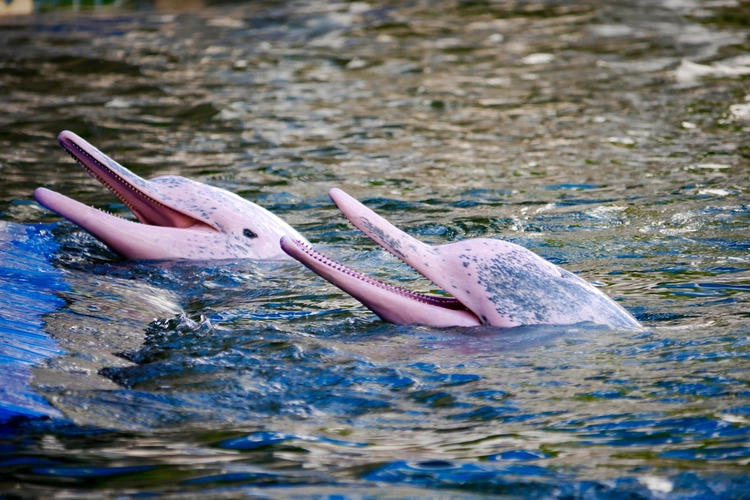
Many species including pink river dolphins are rapidly declining as wildlife numbers shrink, putting ecosystems on the brink
By
The average size of global wildlife populations has shrunk by 73 per cent in the last fifty years, a new report by WWF has revealed.
The Living Planet Report – which studied 5495 species of amphibians, birds, fish, mammals and reptiles between 1970 and 2020 – found all experienced a population decline, with freshwater populations suffering the sharpest decrease at 85 per cent, followed by terrestrial (69 per cent) and marine populations (56 per cent).
More wildlife reads…
Particular species case studies include the loss of 60 per cent of the world’s Amazon pink river dolphins, through a range of factors from pollution to civil unrest.
The hawksbill turtle also experienced a 57 per cent decline in the number of nesting females in 28 years, while the chinstrap penguin population decreased by 61 per cent between 1980 and 2019 due to changes in sea ice and a shortage of krill.
Latin America and the Caribbean experienced a startling 95 per cent decline of wildlife, with habitat and degradation and loss – primarily driven by human food systems – the main reported threat in all regions studied.
Signs of positive conservation impact do feature in the report, including the population increase – 3 per cent per year between 2010 and 2016 – of a sub-population of mountain gorillas in the Virunga Mountains of East Africa, and the comeback of the previously extinct European bison, whose population now stands at 6800.
But the WWF warn that these ‘isolated successes are not enough, amid a backdrop of the widespread destruction of habitats.’

‘Today’s report on catastrophic wildlife loss is a stark reminder of the consequences of continued exploitation of nature and the failure to prioritise its recovery and restoration,’ said director of the conservation organisation Biodiversify, Dr Michael Burgass.
‘This alarming news impacts not only the species we share this planet with but also threatens the very foundations of human health and our economy. Neglecting biodiversity protection leads to disrupted food chains, more frequent natural disasters, and the acceleration of climate change that we are already facing.’
The WWF report also raises more concerns over the effects of a global wildlife decline, including the potential collapse of the Amazon rainforest and loss of its ability to store carbon – vital to protect the planet against the ongoing effects of climate change.
‘With the science clearly laid out, governments and businesses now have a crucial opportunity to reverse this damage and foster an environment that safeguards both biodiversity and humanity,’ Burgass continued.




